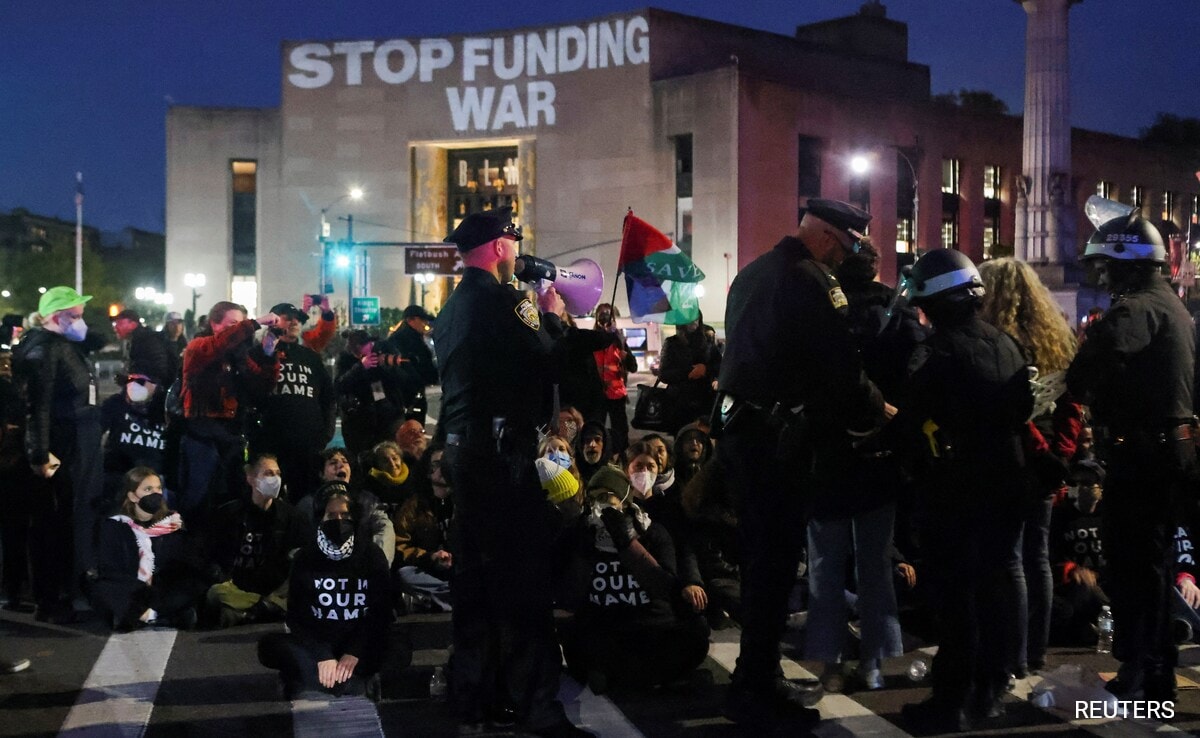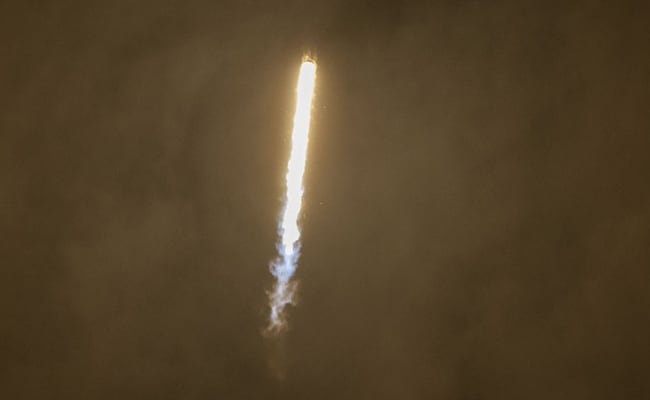
Students from several other universities in the US are holding rallies
Pro-Palestine encampments at Columbia University in the US are still going strong, despite 108 students being arrested and three suspended last week. Contrary to what the police's sweep of the encampments had hoped to achieve, the crackdown has simply stoked the fires of dissent.
Students from several other universities in the US have followed suit, setting up their own encampments, occupying buildings, and holding rallies.
Amid growing demands of divesting from Israel and a ceasefire in Gaza, prestigious schools like Yale, Massachusetts Institute of Technology (MIT), and New York University (NYU) have been trying to suppress these protests, but have failed.
Pro-Palestinian demonstrations have also been ongoing at universities like UC Berkeley and the University of Michigan.
Tensions at Columbia University continue to run high as students refuse to comply with demands to vacate their encampments. Negotiations to reach a deal between the administration and protesters have been unsuccessful.
As a result, authorities announced that classes will be switched to a hybrid learning mode till the end of the Spring semester, ending next week.
These protests have catalysed the eruption of student-led pro-Palestine movements nationwide.
At New York University, 133 protesters were taken into custody after they allegedly threw bottles at the police, who were tasked to clear the encampments. They have since been released with a summons to appear in court on charges of disorderly conduct.
Calling the arrests "outrageous", Byul Yoon, an NYU law student exasperatedly asks, "Why are we not allowed to be here? Why are we not allowed to express ourselves?".
Reiterating the protesters' demands, she said, "We're here to maintain a presence and to demand that the university divest from weapons corporations and from the Israeli occupation."
MIT student Quinn Perian delved into the school's involvement in the violence unfolding in Gaza, explaining, "They've [MIT] had over $11 million allocated in investments for projects directly relating to the Israeli Ministry of Defense in the past decade. MIT is building the weapons that Israel and the Israeli military are using to terrorise and to bomb the Palestinians in Gaza."
UC Berkeley Student and Protest Organizer Malak Afaneh echoed the resolve of protesters, claiming, "Quite frankly, we're going to be here until we achieve divestment. We're willing to risk suspension. We're willing to risk expulsion. We're willing to risk arrest."
At Yale University, protesters declined negotiations with the administration, which asked them to end demonstrations, leave the encampments, and meet with the school's trustees. After defying several warnings, the administration authorised police to clear encampments. About 60 protesters, of which 47 were students, were arrested.
Harvard University also took preventive measures by locking most gates into its famed Harvard Yard and limiting access to those with school identification. Signs were also posted that warn against setting up tents or tables without permission. Despite these, encampments have been set up and protests are ongoing.
Following this, the student group 'Harvard Undergraduate Palestine Solidarity Committee' was suspended for violating university policies.
It is unlikely that the protests will be snubbed anytime soon. Resistance continues to soar as every attempt to suppress protesters is leading to more disillusioned individuals joining the pro-Palestinian cause.

 1 week ago
24
1 week ago
24











 English (US) ·
English (US) ·  Turkish (TR) ·
Turkish (TR) ·